Text
Feminism is not a genre of film!
Does anyone else feel like cinema is kind of popping off in 2024 so far? Watching films has become my coping mechanism for winter. Recently, I watched the film Poor Things which has taken the world by storm; with ‘Best picture’ and multiple other Oscar nominations to prove it. Aside from the gorgeous aesthetics of Poor Things, the film’s story has fuelled the fire for the current feminism in film debate. For anyone who hasn’t seen the film, this post will contain spoilers and I really do recommend you watch it! Poor Things is the story of Bella Baxter, a female lead who’s journey to mental maturation is a key aspect of the film. We follow Bella who is revealed to be an amalgamation of mother and child, the mother’s body with the brain of her infant child (An aspect of the film which receives NOT enough attention). What the film does focus on is how her brain develops and how the young brain being treated as the adult shell affects Bella’s view and experiences of the world. The film covers topics of the 20th Century society, and how women were treated within it, prostitution, marriage, manipulation and suicide.
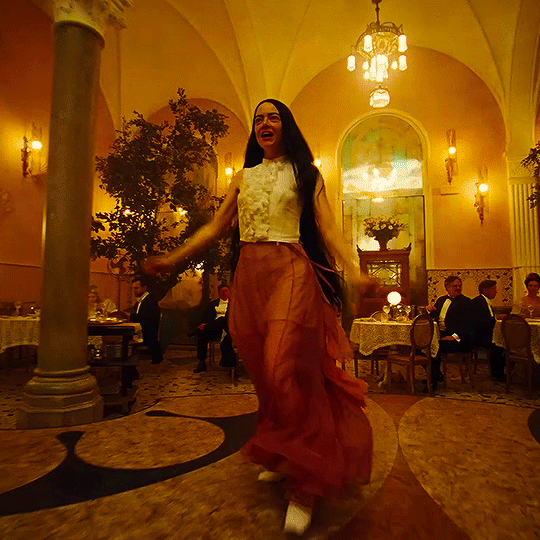
Is Poor Things a feminist film? Seems to be a key question in the discourse. But I think that we need to take a moment to question what this concept actually means, what is a feminist film? Whilst there are many great smaller films that cover feminist topics well, I want to focus on these big blockbusters as these moneymakers allow us to also think about the role capitalism plays in this debate. Film is an industry after all. A common theme in these female-led Oscar noms is that none of them are labelled as ‘feminist’ in their promotional materials. Feminism is still a divisive term, and in the pursuit of profit, it can be risky to give a film such a label. ‘Feminist’ is a label that is both given and taken away by the media and discourse surrounding a film. it is an umbrella term for various socio-political movements, it is a lens in which to view the world and a standard to hold things to. How could this be encapsulated within a film? Within Feminism itself there are internal arguments, one person's feminism may look completely different to someone else's.
Take a look at Barbie, celebrated by some as a feminist classic, but belittled by others as not being feminist enough. How could Barbie be a perfect feminist film? In 90 minutes could the film have covered aspects of a movement that’s history varies so hugely from country to country. There wouldn’t be time to then expand into intersectionality*, would Warner Bro’s dare discuss abortion issues, Barbie meets a TERF? By putting both Barbie and Poor things up to this impossible feminist standard it leads to them being torn down by an angry mob. It is important to view film critically, especially when these topics are covered, but when these films face so much backlash it can have knock on effects and scare filmmakers from attempting to cover women’s issues in their projects. Barbie is a film that set out to make money, it’s based on a bloody toy! While we can acknowledge that there were issues with the topics covered, it is important to also be grateful that a film like this exists, made so much money and definitely introduced or expanded upon feminist topics to the audience.
This leads me to ask, where is this energy for films without a male lead? Feminism can be a critique applied to all films yet seems to only be extended to those with a female lead. Just because a film has a female lead doesn’t mean it is feminist. I think this echoes the emotional labour that society puts on women to represent feminism and fight for respect for themselves and other women. Do we all lack the object permanence to remember feminism unless we’re directly gazing upon a woman? In order to be successful, feminist practices need to be adopted in all aspects of a film, yes with female characters, but also behind the screen. A role can be written and directed by a man, just because it is played by a woman does not mean it is feminist or not exploitative.

Capitalism wants to sell us feminism as this neat little package, it wants us to buy into it and forget that there is no way to price an ideology. Poor Things is a fantasy film, not a feminist film, feminism is not a genre. Yes, there are Feminist themes, but there are also prominent themes of class issues, yet no one is rushing to label it as a communist film. If we cannot decide a set framework or criteria for a feminist film, we need to stop trying to use that label. Feminism is a critique that can be applied to all media, and feminist debate surrounding film needs to also expand to cover those behind the scenes. Let’s just enjoy some cinema and accept that it cannot fit into the high standard, but by sparking a conversation it can do more and still be used to educate people.
*Hey, don’t know about intersectionality? Thats cool, but you should acquaint yourself. Intersectionality in feminism is an acknowledgement that gender based oppression isn’t one size fits all and that other factors such as class and race can have a huge effect. Read up
15 notes
·
View notes
Text
Gaylor and online queer spaces
This blog post is inspired by the (kind of) recent New York Times article speculating about Taylor Swift’s sexuality and the so-called ���Gaylor’ conspiracy. Ethically it is undeniable that this, very public, speculation on a person's sexuality is invasive and dehumanising. Yet, as a society we are obsessed with 'uncovering’ celebrities' sexualities – look at the recent events and outing of Billie Eilish. Queer or presumed so, celebrities who do not choose to come out are subject to gross examination and pressure to divulge such a personal aspect of life as their sexual preference. It is a culmination of para-social relationships, celebrity culture and the taboo secrecy that still surrounds sexuality.
Taylor Swift is the undisputed queen of para-social relationships. Her personal lyrics in songs have created a fanbase that feels entitled to know her deepest feelings and desires. Other than the obvious lack of boundaries here, another issue I have with the ‘Gaylor’ theorising is how it reduces queerness to stereotypes. Taylor refusing to speak on the subject has led her rabid fans to analyse everything she does and create their own queer narrative. This does reflect the queer experience of meeting someone you’re attracted to and trying to figure out if they're interested, or vice versa trying to outwardly express your sexuality. But it's not like TS is walking around with the tiger rainbow tote bag, she just follows trends, it’s not her fault that lesbians have the coolest style.
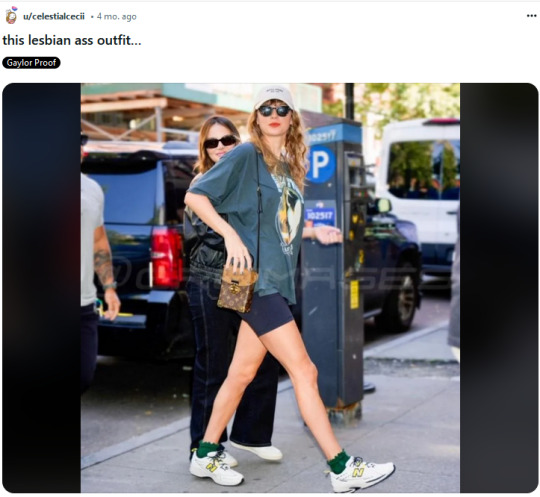
How is this not homophobic? This theorising reduces sapphic sexuality to fashion choices.
Another celebrity that is surrounded with online speculation over their sexuality is Harry Styles, discussing him and Taylor feels like I’m really poking the hornets' nest. But he is another artist that capitalises on the excitement surrounding sexuality rumours. Again, no one should ever come out if they don’t want to, but it brings into question, if these celebrities really were so unwilling to be seen publicly as gay, why are they still willing to capitalise on the speculation? Either or, baby! Profiting off this cloud of speculation is greedy, this breathes life into these conspiracies, how could a celebrity morally do this? Your fave pop princess would never lead fans on just so they can make money. These celebrities can wave rainbow flags all they want at their concerts, but they are taking spaces that could be given to out and proud LGBT artists that will then uplift others and provide vital representation for queer folk.
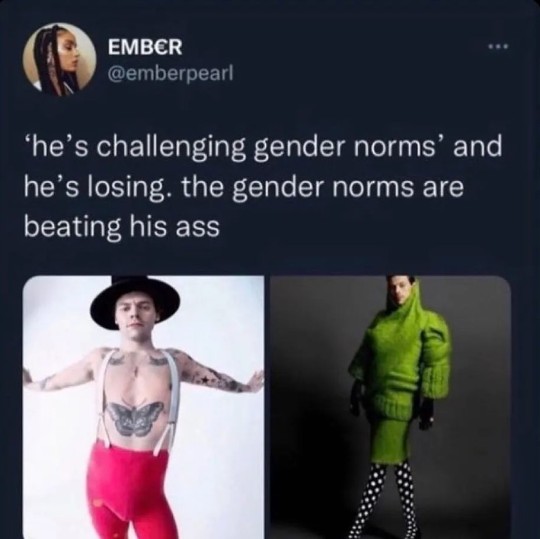
One thing that the online ‘Gaylor’ conspiracy does highlight is the demand for queer online spaces. This conspiracy does create online discourse surrounding sexuality and allows those within it to discuss aspects of queerness without self-reflection. Is it a leap to say that some of the people analysing Taylor swifts ‘hidden messages’ may be projecting their own oppressed queerness? This blatant online discussion of sexuality reminds me of shipping culture and the well-known practice of taking two (often non overtly queer) characters and creating conspiracies of a queer relationship. Think Johnlock, Darry or my personal teenage ship Harley Quinn and Poison Ivy. Shipping culture can extend to real people, but that's a whole post in itself. For myself as a teen figuring out my own sexuality, seeing the breadcrumb sapphic relationship between Harley Quinn and Poison Ivy was fascinating, it allowed me to talk about queerness whilst I was still coming to terms with how I felt. Gaylor and this speculation creates the same environment for Taylor Swift fans, folks who, due to their own views on sexuality, may be apprehensive to enter pre-established online queer spaces. I hope that it provides that for some, and isn’t just a vulgar dehumanisation of a pop icon
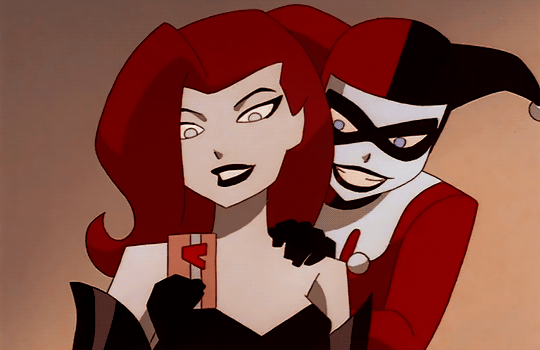
I know Taylor will not read this post, but if she was to I would give her some advice. Firstly, she owes no one the truth about her sexuality, and, although it is profitable, needs to work on breaking that parasocial relationship her fans have with her. For everyone's sakes. It is not healthy for people to centre their online personalities on whether or not someone is gay, you don't have to come out to call it out. It’s clear her fans hunger for a female queer icon, and if she is unable to fill that role then she should be uplifting other queer artists, put them as supports in her tour, I’m sure a single tweet would create a storm. She could keep her ‘gaylor’ fans satisfied and actually do some good for the LGBT community. You don’t have to be out and proud to support LGBT rights and who has a bigger platform than her to speak out about issues facing the community.
But this issue is not just due to a handful of pop singers, as a wider society we need to become more aware how we discuss sexuality. How celebrities are treated can be a public example of societal attitudes towards ‘regular’ people. These fans need to be educated that, celebrity or not, it's not okay to speculate and almost fetishize someone's sexuality. If you think they're LGBT and they haven't told you, maybe you should self-reflect and think about why that is.
GAY RIGHTS!
0 notes
Text
Scorned Women Media
This post was inspired by my recent watch of the gorgeous new Sophia Coppola biopic Priscilla. As Coppola does so well, the film created a hazy pastel world, a series of snippets from Priscilla’s time with Elvis Presley. Allowing us, the viewer, to watch the teen girl slowly be manipulated and abused by this rock and roll legend. The perfect femme fatale, no doubt that she is the victim in this scenario. Priscilla adds to the growing pop culture catalogue of scorned women media. This post will explore the intricacies of the femme fatale and whether or not our obsession with the female victim can be empowering.

When I say the term ‘Scorned women media’ I mean both fiction and non-fiction stories that focus on the women as the victim in the scenario. We love depictions of woman suffering in the same society we do. Whether it is their lived experience or as collateral in another’s story. See the popularity of Princess Diana. A clear example of this is the shift in attitude towards Paris Hilton after her 2021 YouTube documentary. Paris disclosing that she was actually playing more of a character and a victim of abuse in the Troubled Teen Industry. Through such a personal disclosure she went from being a bimbo who can’t DJ, to a survivor and businesswoman who leveraged societies prejudice to make millions. The truth being that this Paris was there the whole time, we just weren’t looking.
Biopics are a staple of cinema and becoming ever more popular. The biopic allows us to enter the world of a well-known figure, satisfying our natural human curiosity with a healthy dose of nostalgia. In terms of Priscilla, Coppola not only told her story but recreated her world, which I personally loved being a part of. But when we look back at the Biopics of the past few years the female led stories are greatly overshadowed by those of men. Just 33% of films in 2022 were those depicting solo female protagonists. In 2023 we had twice the amount of male led biopics to female led (18:9). It is important to tell stories of iconic figures in society, but the Hollywood funding bias leads to an oversaturation of white- male led stories.
Something that made Priscilla stand out as a female biopic was the inclusion and input of Priscilla herself as a producer. Blonde and Spencer are recent films (2021 and 2022) posthumously telling the struggles of their main characters. In both cases, this lack of humanisation of their main characters leads to a violent depiction of their suffering and presents fiction as fact. Although Spencer does admit itself as more of a ‘fable’ it is a tough 2 hour exploration of ar Di’s presumed mental state and provides the titular character little relief or redeeming characteristics. Is it too much to ask to see a woman succeed?
Priscilla peppers in scenes of abuse, yet still spends enough time with our main character for us, the audience, to see other characteristics of hers. There has been slight backlash into the favourable view of Elvis in this story, but with Priscilla herself as the producer, could this not just be her personal view. I hope that Priscilla is a sign of a shift in scorned women biopics to be made based on stories of its victims and prioritise what they WANT to say rather than sensationalise their suffering. Such personal and vulnerable depictions of women need to be more empowering, rather than add to the exploitation that they have already suffered from.
Another 2023 hit was the autobiography of Britney Spears ‘The woman in me’, that allowed her to finally speak her truth after years of public exploitation. Spears’ book allowed her to reclaim her narrative, which is never a bad thing. The change in public attitude towards Britney shows a more general shift in how we view women and the symbiotic relationship this has with the media (we’re nicer to women so they are too). In her youth, Britney was so heavily exploited through stories told about her, the relentless hunting from paparazzi and their capitalising on her most vulnerable moments. The demand and space for her to write this book shows that we are more sympathetic to the struggles of women and our it-girls. ‘The woman in me’ will draw rage from any reader, rage towards how Britney was treated by the media, her family and her ex-partner Justin Timberlake. Their relationship was heavily prevalent at the time and was used by Timberlake to further his own career, by creating a false victim narrative and feeding into a pre-existing sexist hatred of Spears. He spread rumours that he was the victim of cheating, discussed her virginity in interviews and used a lookalike in his music video, all to draw sales. With the release of ‘the woman in me’ his reputation was shot through, his exploitative actions exposed (not like they weren’t already obvious) and Britney winning the public court of opinion.
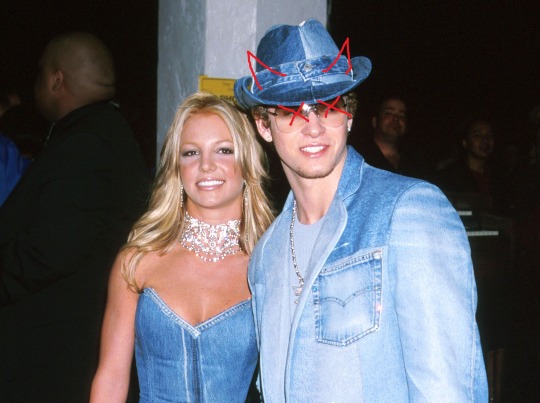
It took the release of the Britney’s autobiography to cause such a shift in public opinion. We, as a society, needed the victim to underline and contextualise his shitty actions, it brings into question whether anything would have happened if Spears had not so clearly corrected his lies. Well, in a clear case of Justin Timberlake, we see that it did in fact take a dressing down from Spears for him to admit his wrongdoings, not only to her but to Janet Jackson. The Janet Jackson incident being a wardrobe malfunction that led to him exposing Jackson’s breast in the 2004 Superbowl. This resulted in Jackson being uninvited from the next Grammys, and Timberlake winning multiple. Whilst Janet Jackson herself has only spoken positively about Timberlake and the incident, was her not allowing herself to be portrayed as a victim stopping us from seeing Timberlake as a controversial character. If Jackson had filled this role of scorned woman would we have seen her as being unfairly treated. Victim or not, the cancellation of Janet Jackson for this incident was disgusting and heavily sexist.
But the point of Jackson vs Timberlake also brings into question the racial element of scorned women media. Previous examples of Priscilla, Spencer and Blonde all show beautiful, young, WHITE women. I believe this is due to the pre-existing views on white women as natural victims, frail and those to take care of. Although the slow feminist shift in attitudes has allowed us to now support the Paris Hiltons of the world- the reliance on big budget offerings to do such takes the little funding and heavily directs it to favouring space for white women to share their woes. Sexist predispositions are one thing to fight, but Black and POC women are handed another burden of racial bias. This dichotomy leads to stereotypes such as the ‘Angry Black woman’ , this pre-exsiting bias limits opportunities of scorned black women to present themselves as such. Our feminist shift needs to evolve to allow space for ALL victims of sexism to speak their truth in an EMPOWERING way. By no means do victims need to share their stories if they are not ready, but priorities must be shifted to allow those who choose to, to have the ability to. With this needs to be space for victims' stories to be consumed without them being patronised or sensationalised.
Whilst we may benefit from seeing the representation in victimhood, we, as consumers, need to be aware of the forms of scorned women media we consume. We need to demand the depiction of women at their most vulnerable to be empowering like Spears’ autobiography. It needs to cause a shift in perception like Paris’s documentary. It needs to benefit the ones at the center of it rather than benefit from their suffering. The scorned woman is not just the beautiful white woman. An unfortunate fact about our society is that every woman is scorned. But now this growing societal focus must shift to stories of POC women, to further dismantle stereotypes and force self-reflection.

8 notes
·
View notes
Text
Hair ribbons and reclaiming femininity
Screw healing our inner child, it’s time to heal our inner teenager.
(this post is written from my perspective as someone who grew up as a cis white girl, I know my experience is not universal but I got smthn to say)
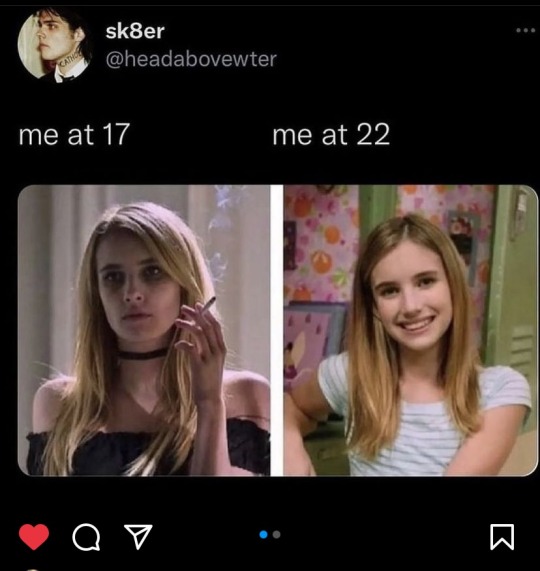
It’s no hot take to say that society hates young teenage girls (I’m talking 13/14 here) and belittles things that they love. In my personal teen experience, it was watching the mass public ridicule of the mega successful Twilight franchise. My response to this was to turn around and pretend I hadn’t spent years obsessing over this fantasy love triangle, rejecting part of myself to escape the shame of liking something that other teen girls, like me, enjoyed. A huge part of the girlhood experience is shedding things you once loved, partially due to growing up and partially because you are taught to hate them. Nothing but respect for the die-hard boyband fans of the 2010s, true warriors.
But now I’m in my 20s I can definitely see a trend of reclaiming these lost aspects of teenage girlhood. From the of the Barbie movie grossing over a billion, to the shift in conversation to actually valuing the work and words of Britney Spears. I think this can best be symbolised in one of the biggest fashion trends of 2023 – RIBBONS AND BOWS. Hair bows are inherently linked to young girlhood, be it school uniform, or children’s toys, it now feels like every fashion girlie has at least one ribbon in their ootd. The specific thing that's great about the ribbon trend is the inherent DIY nature of it, yes you can probably get a hair ribbon from any high street store, but more common is people buying lengths of ribbon from craft stores and affixing it to items they already own.
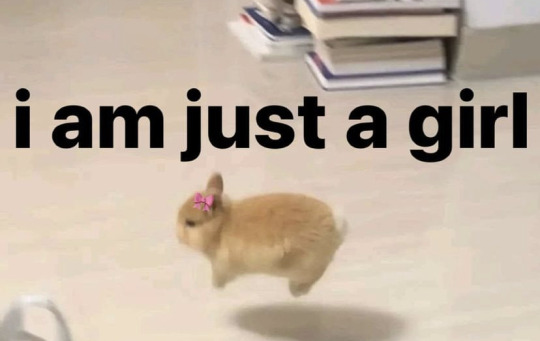
The current manifestation of this anti teen culture is the seeming lack of space for teenagerhood, definitely not specific to teenage girls. But, where is the Twilight equivalent early teenage fad? We had Highschool musical, Buffy, and, as hated as it was, Riverdale. This lack of teenage representation in traditional media has forced the children of today to turn to social media, where they are not catered to. Us 2000 Gen-z did have social media when we were teens, and whilst it was still a big aspect of us growing up it has morphed from what we once knew to a whole new beast. Part of this can be attributed to the capitalist rise of influencer culture and the fact that it is now possible to make money on social media, rather than just sharing pictures of lush bath bombs. This prevalence of marketing perfect influencer lifestyles lends itself to the biggest trend for young girls online right now, skincare. You don't have to be on TikTok long to find a 14 year old with an AM\PM routine that costs more than I earn in a week, why are these young girls using bloody anti-aging products? Social media has robbed teenagers of the confused awkward phase and made them into aspiring celebrities, a la Charlie D’amelio. Their teenage representation is these young perfect millionaires, and they emulate what they see. The closure of teen magazines and the fact that they are using social media sites dominated by people older than them, has forced teenagers to mature at an even faster rate. It's hard enough as a ... somewhat emotionally mature 20 something, to remember that social media is just the highlights, do teens have the awareness to think the same?
In short, teens are turning to online spaces to learn about the world, and these online spaces treat them like adults and exploit their insecurities to sell just like the rest of us. Being in these spaces dominated by people older, means that, through imitation, they are maturing quicker than ever before. When we were teens, we were just taught that the popular things we liked were actually just shit and embarrassing. But nowadays there isn’t even that media FOR society to shit on. How dare any of us teen girls be ... teen girls.
As femmes growing up in the 2000s, reclaiming the femininity we were taught to hate can feel like a rebellion. I seek to reclaim the youth I so willingly discarded. But in this, there has to be a self-reflection of what femininity is, with the power of hindsight, we are able to select the juvenile expressions of girlhood that feel empowering. The prettiness of bows without the discomfort of forcing my growing body into an underwire bra because that’s what everyone else had. As a concept femininity can be inherently capitalist and used against us to sell things. The classic pink tax is an example of things marketed towards a female audience being often more expensive and sometimes just a worse product. But the DIY hair bow trend is making our own version of femininity. I wonder if in 5 years' time the teens of today will abstain from skincare, in an effort to reclaim the grubby teenagerhood they missed out on, much like the resurgence in popularity for Twilight.
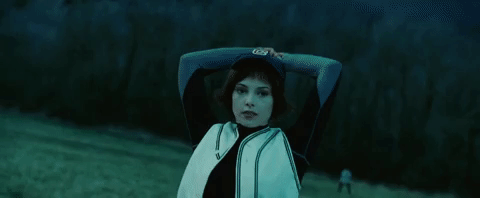
At 23 I sleep with more stuffed toys than I did 10 years ago, I drink less than I did at 16 and I stay away from hair removal cream at all costs. The return to childhood is a deeply personal experience, but the societal demonisation of everything teen girl has impacted all of us. Is returning to childhood and making my life cute and fluffy a coping mechanism for the current state of the world, maybe, or is it just a piece of ribbon tied to my bag?
0 notes
Text
Nice to meet you 🦇
Hello and welcome to my little blog.

I am starting this with the goal of improving my writing skills. I finished my degree in Politics and Peace Studies back in 2021 and have written little since. Can it still be classed as academic burnout 2.5 years later? Studying Politics in the middle of the pandemic sure did wear me down.
That doesn't mean I've not been politically aware, although keeping up with the news can sometimes be depressing, I've found some great online feminist publications that have made politics feel more accessible and less about journal articles that take so long to decipher.
To work on my writing I thought it would be best to focus on what really interests me, which is why I'm here. I wonder how many other young teen girls were radicalised by Tumblr feminism back in 2014, but for me it was formative. My feminism has definitely evolved from its white-centric girlboss roots, and I learned so much in my degree that I would love to share and translate to be more accessible. The other half of this blog is more tied to my personality and why I picked the name BATTY! Joint with my teenage tumblr feminism was a pretty heavy emo phase, mainly My Chemical Romance of course. In the past 10 years it has somewhat lingered, and culminated in a love for the gothic subculture, especially vampires.
So this is BATTY, where I plan to apply my feminist takes to the gothic subjects I love and go from there. This is really just a creative space for me to work on my written communication skills, but it would be lush if someone else enjoyed it too.
2 notes
·
View notes